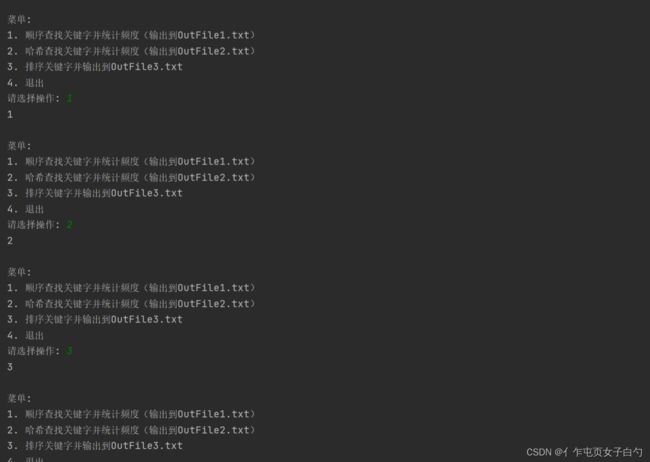C语言实现关键字匹配算法(复制即用)
文章目录
- 前言
- 功能要求
- 运行截图
- 全部代码
前言
无套路,均已上机通过,求个关注求个赞,提供答疑解惑服务。
功能要求
一份C源代码存储在一个文本文件中,请统计该文件中关键字出现的频度,并按此频度对关键字进行排序。要求:
- 从文本文件InFile.txt读取C源代码,从文本文件Key.txt读取关键字列表。
- 分别采用如下不同的查找策略进行频度统计:
- 链式存储上的顺序查找;
- 基于链地址法的哈希查找。
- 基于快速排序实现关键字排序。
- 不论采取哪种查找和排序策略,完成功能均相同。
- 关键字统计:依次从关键字列表Key.txt中读取关键字,若该关键字未在文本文件InFile.txt中出现,则将其频度计为0;每检索到一次该关键字,则将其频度增加1。统计结束后,将所有关键字及其频度按关键字列表顺序写入文本文件中。其中,无论关键字列表中的关键字是否出现都要计数。不同查找策略所获得的结果分别写入不同的文件(OutFile1.txt,OutFile2.txt)。
- 关键字排序:根据关键字出现的频度对所有关键字进行从高到低排序,舍弃关键字列表中未出现的关键字。如果关键字出现的频度相等,则按照关键字的首字母从小到大排序,将排序后的关键字及其频度写入文本文件(OutFile3.txt)中。
- 设计菜单,实现上述功能。
运行截图
全部代码
#include 